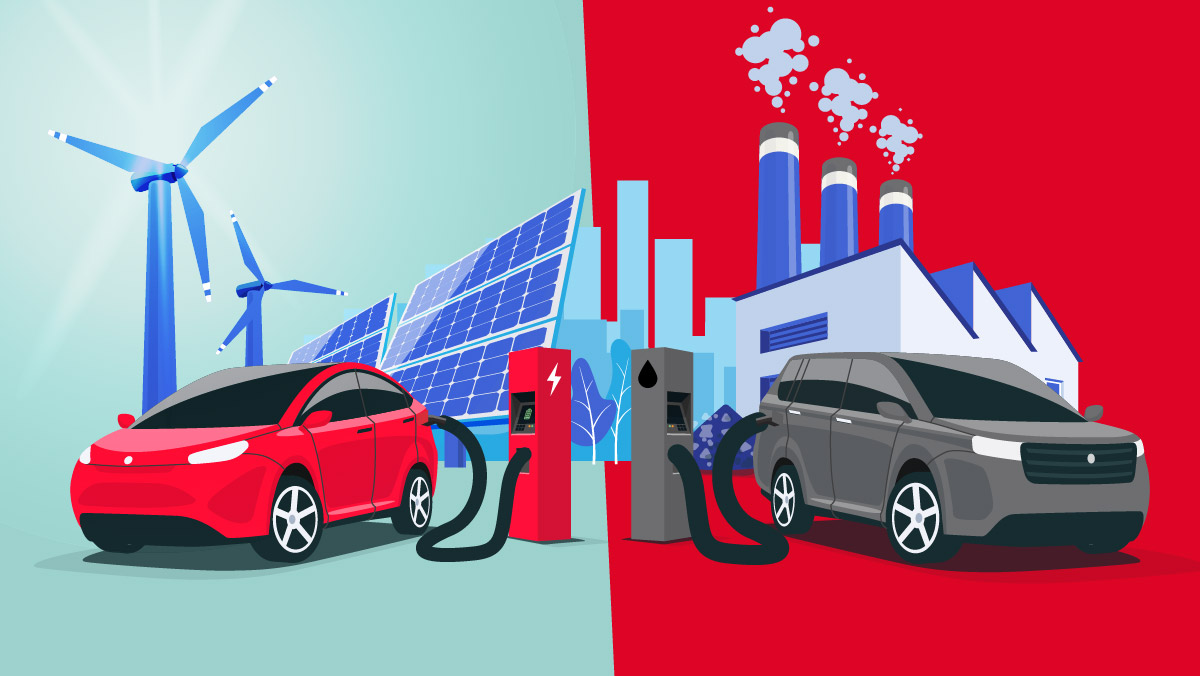The automotive industry is undergoing a monumental shift, with electric vehicles (EVs) becoming a popular alternative to traditional gas-powered cars. But beyond the environmental benefits and technological allure of EVs, a pressing question remains: Are electric cars actually cheaper than gas cars in the long run?
This decision goes beyond the upfront cost of a vehicle. It includes fuel efficiency, maintenance expenses, government incentives, and even resale value. Let’s break down the numbers and explore which type of car is truly more economical over time.
Initial Purchase Costs: Electric Cars vs. Gas Cars
When considering the upfront cost of a car, gas-powered vehicles traditionally hold the edge. On average, a gas car is less expensive to purchase compared to an electric vehicle. However, government incentives and rebates for EVs can significantly narrow the price gap.
Key Points to Consider:
- EV incentives: Federal and state tax credits (up to $7,500 in the U.S.) reduce the effective price of many electric cars.
- Gas cars: Typically have a lower MSRP, making them more accessible for buyers on a tight budget.
Fuel Costs: Electricity vs. Gasoline
One of the most significant factors influencing long-term costs is fuel. EVs run on electricity, which is usually cheaper than gasoline.
Electric Cars:
- Charging costs vary by location but are typically lower than gas prices.
- Home charging: Installing a Level 2 home charger adds convenience and reduces long-term costs.
- Public charging: Costs may be higher, especially at fast-charging stations.
Gas Cars:
- Gasoline prices fluctuate based on global market conditions.
- On average, fuel expenses for gas-powered cars are significantly higher than charging costs for EVs.
Example:
A typical EV consumes 30 kWh to travel 100 miles, costing around $3–$5 depending on electricity rates. A gas car may require 3 gallons of fuel for the same distance, costing $12–$15 at $4/gallon.
Maintenance Costs: EVs Shine Bright
Electric vehicles have fewer moving parts compared to gas cars, leading to lower maintenance costs over their lifespan.
EV Maintenance:
- No oil changes or engine tune-ups required.
- Fewer components like spark plugs, belts, or exhaust systems to replace.
- Battery warranties often cover 8–10 years, providing peace of mind.
Gas Car Maintenance:
- Routine oil changes, transmission services, and exhaust system repairs add up.
- Higher wear-and-tear on components compared to EVs.
Statistically Speaking:
According to Consumer Reports, EV owners spend 50% less on maintenance compared to gas car owners over the vehicle’s life.
Longevity and Resale Value
DThe resale value of a car is a crucial aspect when considering long-term costs.
Electric Cars:
- Resale values have improved with advancements in battery technology.
- Depreciation may be higher initially due to rapid technological changes, but this trend is stabilizing.
Gas Cars:
- Historically maintain resale value longer due to established infrastructure and familiarity.
- As EV adoption increases, gas cars may see a decline in desirability.
Environmental and Hidden Costs
Beyond dollars and cents, there’s the question of environmental costs. EVs produce zero tailpipe emissions, offering a significant reduction in carbon footprint compared to gas-powered vehicles.
Additional Benefits of EVs:
- Lower greenhouse gas emissions, especially in regions powered by renewable energy.
- Energy efficiency: EVs convert over 60% of energy to movement, compared to 20%–30% for gas cars.
Gas Cars’ Hidden Costs:
- Environmental impact of burning fossil fuels.
- Potential future carbon taxes as governments enforce stricter emissions policies.
Are Electric Cars Cheaper in the Long Run?
When all factors are considered, electric cars often emerge as the more cost-effective choice over time. However, the answer depends on individual circumstances like driving habits, access to charging infrastructure, and regional energy costs.
Conclusion
When it comes to the question of electric cars vs. gas cars, the long-term savings potential of EVs is hard to ignore. Lower fuel and maintenance costs, coupled with environmental benefits, make them an attractive option for many drivers.
However, the right choice depends on your unique situation—whether it’s your driving habits, budget, or access to charging stations. As technology continues to improve and adoption grows, EVs are becoming a smarter financial and environmental investment.
So, are you ready to make the switch and drive into a greener, more cost-effective future?




